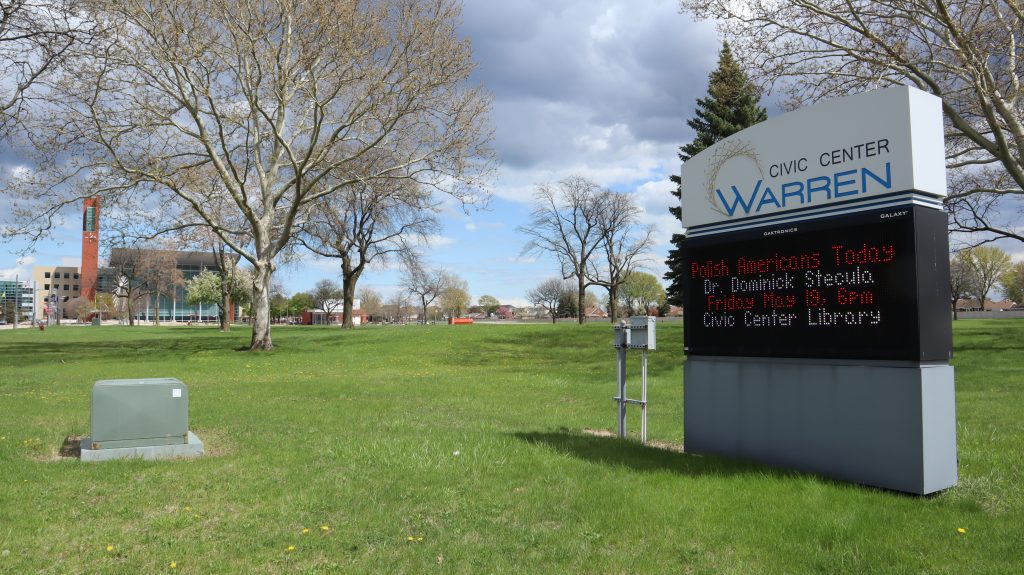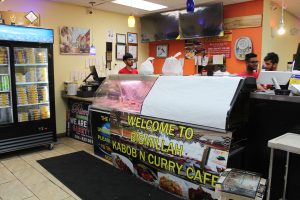Warren’s Bangladeshi community seeks representation on City Council
Five Bangladeshi Americans are running for Warren City Council positions in the August primary.

In Warren, Michigan’s third largest city, there is a growing Bangladeshi community. That increase in population, however, hasn’t yet translated to an elected official in Warren’s city government. But with five Bangladeshi-American candidates running for office in the August 8 primary, there’s a chance that could change.
Listen: Warren’s Bangladeshi community seeks representation on City Council
The takeout area at Bismillah Kabob N Curry in Warren is bustling during dinner time. People are picking up samosas, butter chicken and more, while others dine in. Warren resident Tammanna Khanom is one of the patrons. She says her family moved to the United States from Bangladesh when she was six years old.
“I lived in New York for like five years, then we lived in Hamtramck, and then Detroit for a few years. And then we moved to Warren,” says Khanom.

This is a fairly common trajectory for Bangladeshi immigrants like Khanom. Many Bengali people first settled in the United States in places like New York or California. But then in 1971 the country of Bangladesh was formed after a civil war in Pakistan and a cohort of Bangladeshi people started moving to the Detroit/Hamtramck area because of the auto industry.
Bangladeshis in Warren
Bangladeshi immigrants have continued to move to the area, but Syed Hoque, a Vice President at the Bangladeshi American Public Affairs Committee says second-generation immigrants aren’t necessarily staying in Detroit or Hamtramck.
“They’re looking for that better neighborhood, bigger house, the safe area,” says Hoque. “They start moving in the Warren area because Warren is very close from the Hamtramck/Detroit area.”
The U.S. Census Bureau has not made recent data available regarding the Bangladeshi population in Warren. The last time the bureau shared information about the community’s size was in 2015. At that time, there were estimated to be 2,168 Bangladeshi people living in Warren, making up roughly two percent of the population.
Hoque estimates the community is now closer to between 7,000 and 8,000 people. He says this number is based on attendance at Bangladeshi mosques.
“Every Friday we have a big gathering, the Friday prayer. All the mosques are full,” says Hoque.
Five Bangladeshi candidates
And as the Bangladeshi population in Warren has grown, so has the number of Bangladeshi candidates running for city council, with five on the ballot in the August primary. This isn’t the first time a Bangladeshi American has been on the ballot, but this is the first time there’s been so many.
Three of the candidates – Khaja Afzal Hussain, Mo Islam and Shabbir Khan – are running in District 1, Kabir Ahmed is running in District 2, and Khaja Shahab Ahmed is running at large. Find more information on all Warren City Council Candidates here.
Warren’s current council does not represent what the city looks like today, says Munni Rahman, the Macomb County organizer at Rising Voices, a nonprofit that works to build political power for the Asian American community.
“Historically, we know Warren was a destination for white flight,” says Rahman. “So, a lot of the candidates are representative of the community from the past. It’s not reflective of the demographic that has changed.”
This summer, a Bangladeshi-American festival that was booked on Warren city grounds was canceled by a city park official for being ethnic, a festival organizer told Detroit Metro Times. The festival was ultimately allowed to go forward but the incident prompted Warren’s city council to pass its first anti-discrimination ordinance.
A chance for representation
2022 Census estimates show Warren’s population is 2.6 percent Hispanic or Latino, 10.5 percent Asian alone and 20.8 percent Black. And yet Warren’s city council is all white.
Like the population itself, the city is diverse in languages spoken. About 18 percent of Warren residents speak a foreign language.
“We know there’s an aging population that are non-English speaking,” says Rahman. “They are members of the community. So, we have to be able to hear about the problems that they have.”
Rahman says electing a candidate who speaks a language like Bengali could help lift communication barriers for residents whose voices aren’t currently heard by council.
Back at Bismillah Kabob N Curry, Tammanna Khanom says seeing a Bangladeshi person elected to council would be powerful.
“It would mean a lot,” she says. “So that means we’re being acknowledged, we’re here and we’re trying to make a difference.”

Bangladeshi people aren’t the only Asian candidates running in Warren this election. Marie Adkins, a Filipino American, is running for city council at-large. Michael Howard is part-Filipino, part-Black, and is running for council in District 2. Seng Xiong, running for council in District 3, is Hmong American. Mai Xiong, also a Hmong American, is currently serving as a Macomb County Commissioner but is running for Warren City Clerk.
The primary election is currently taking place and runs until 8 p.m. on Tuesday, Aug. 8. After the results are tabulated, the candidates with the most votes will face off during the November General Election.
Trusted, accurate, up-to-date.
WDET strives to make our journalism accessible to everyone. As a public media institution, we maintain our journalistic integrity through independent support from readers like you. If you value WDET as your source of news, music and conversation, please make a gift today.
